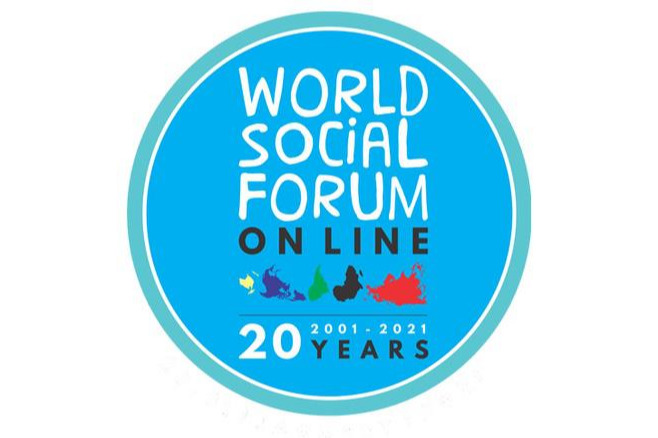
The World Social Forum continues in Mexico City via virtual connections
Mexico City, January 26 (RHC)-- The World Social Forum (WSF) continued Tuesday with the themes of education, communications and culture, after exhausting the agenda on Social Justice, according to the program of this 20th virtual meeting coordinated by Mexico.
The list of participants includes more than 40 speakers representing social organizations, trade unions, universities and other entities that have been taking part in these meetings for 20 years, as a counterpart to the Davos Forum, which meets simultaneously in Switzerland.
Given the number of speakers, each one with a different topic to present within the same thematic space, it is doubtful that the agenda can be completed within this Tuesday's session, which will continue to be held virtually.
The opening theme deals with information technology, knowledge and cognitive capitalism, followed by a sub-theme on indigenous peoples, and will be led by the Forum's Communication and Facilitation Working Group.
There are two transversal points in this space, as was the case with the previous ones; one on gender and the fight against racism, and the other -- very special -- on the future of the WSF, in which ideas will be presented on how to go forward after two decades of sessions, and in the light of the experience of the COVID-19 pandemic.
During the course of the day, a workshop will be held on the World People's Agenda 2030, focusing on the People's Plan for the 21st Century in order to renew the promise of rebuilding this alliance of hope, as this memorandum was called.
The presentation will be given by representatives of the Federation of Unions of Technical-Administrative Workers and Public Higher Education Institutions of Brazil, and the Federal Public Service in the struggle for democracy and life.
Among the 44 topics in total on Tuesday are the priority right to the vaccine against COVID-19 for social workers, a panel on alternative infrastructure, digital security and community networks in which several institutions will intervene, including the Association of Progressive Communications and Intervozes Coletivo Brasil de Comunicação Social.
Two other issues to be discussed are the pros and cons of the current role of Latin American theology by the Forum Mundial de Teologia e Libertação, and the violence against journalists and freedom of expression with the participation of the Federação Nacional dos Jornalistas de Brasil.

